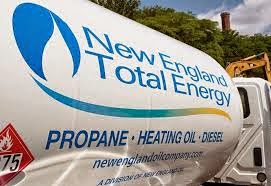Well, yes! Wide advantages are associated with it that makes it a better option for heating, cooking, or drying.
A mixture of methane and other gases is made to prepare natural gas, while a byproduct of both petroleum refining and natural gas processing is used to prepare propane.
Following are the advantages of choosing propane over natural gas from reliable oil companies in Westchester NY:
Energy and cost
Energy consumed per unit puts a great impact on the cost. Propane provides more energy per unit than natural gas, which in turn reduces hefty bills.
Performance and preference
Propane and natural gas is perfect for heating or cooking. The difference lies with the taste of food when cooked at propane or natural gas.
The charm of grilling on propane is much better on propane gas as compared to that of CNG (compressed natural gas) gas.
Use of these gases in vehicles puts a great impact on the performance of vehicle. Cars, trucks or any other vehicle running on propane gas
runs more efficiently at least cost, which in comparison costs more expensive when running on CNG.
This is the reason why, propane is considered better choice for vehicles like cars, buses, or taxis that are more in number on the road.
Storage
Another difference of both these gases can be measured with its physical properties.
Propane turns into a liquid at -46°F (-43°C) and natural gas is turned into liquid (LNG) form at -260°F (-162°C).
When storing propane gas, it can be easily stored and carried from on location to another in portable steel tanks. In contrast to it, CNG is compressed before it is stored or transported. Moreover, it is kept under extremely high pressure, because a single mistake in storing could cause burst.
Hence, looking into the storage factor, propane is preferred over CNG as it is easier to move and extract from the tanks.
Risk factors
Both propane and natural gas, if gets dissipate into the air can cause explosive risk, but because of their properties, such things are least to occur.
As discussed in above points, propane is heavier than natural gas, which reduces the risk of explosion as compared to CNG, which is more likely to explode, if storage tanks are damaged. This is another major reason behind the extensive use of propane gas in various applications.
A mixture of methane and other gases is made to prepare natural gas, while a byproduct of both petroleum refining and natural gas processing is used to prepare propane.
Following are the advantages of choosing propane over natural gas from reliable oil companies in Westchester NY:
Energy and cost
Energy consumed per unit puts a great impact on the cost. Propane provides more energy per unit than natural gas, which in turn reduces hefty bills.
Performance and preference
Propane and natural gas is perfect for heating or cooking. The difference lies with the taste of food when cooked at propane or natural gas.
The charm of grilling on propane is much better on propane gas as compared to that of CNG (compressed natural gas) gas.
Use of these gases in vehicles puts a great impact on the performance of vehicle. Cars, trucks or any other vehicle running on propane gas
runs more efficiently at least cost, which in comparison costs more expensive when running on CNG.
This is the reason why, propane is considered better choice for vehicles like cars, buses, or taxis that are more in number on the road.
Storage
Another difference of both these gases can be measured with its physical properties.
Propane turns into a liquid at -46°F (-43°C) and natural gas is turned into liquid (LNG) form at -260°F (-162°C).
When storing propane gas, it can be easily stored and carried from on location to another in portable steel tanks. In contrast to it, CNG is compressed before it is stored or transported. Moreover, it is kept under extremely high pressure, because a single mistake in storing could cause burst.
Hence, looking into the storage factor, propane is preferred over CNG as it is easier to move and extract from the tanks.
Risk factors
Both propane and natural gas, if gets dissipate into the air can cause explosive risk, but because of their properties, such things are least to occur.
As discussed in above points, propane is heavier than natural gas, which reduces the risk of explosion as compared to CNG, which is more likely to explode, if storage tanks are damaged. This is another major reason behind the extensive use of propane gas in various applications.

No comments:
Post a Comment